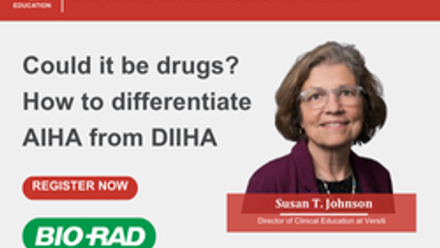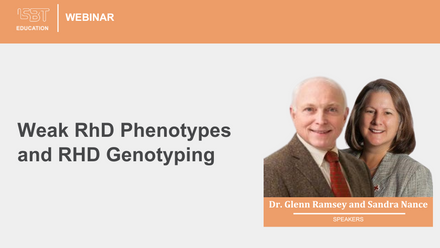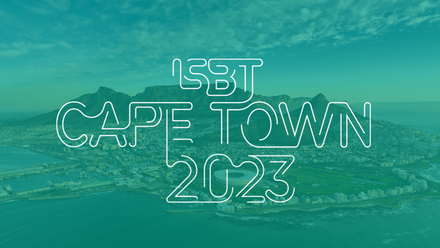The Recent technological advances in Immunohematology session included the following presentations:
1. Tim Steiert: Blood group haplotypes and third generation sequencing
2. Mercy Rophina: Characterization of the genomic landscape of blood group antigens and alleles in the Indian population utilizing whole genome sequencing data
3. Sonja Sigurdardottir: Molecular RHD donor screening in Switzerland: discovery of novel alleles by nanopore-sequencing
4. Masja De Haas: Implementation of a ddPCR method for non-invasive fetal blood group typing for alloimmunised pregnant women
5. Sylvia Mink: Automated data analysis framework for next generation sequencing blood group testing
MODERATORS: Christoph Gassner and Asa Hellberg
After the presentation, there was a questions and answers session of about 5 minutes, which is also included in the recording.
Abstract
Characterization of the genomic landscape of blood group antigens and alleles in the Indian population utilising whole genome sequencing data
M Rophina1,2, R C Bhoyar1, M Imran1,2, V Senthivel1,2, M Kumar Divakar1,2, A Mishra1, B Jolly1,2, S Sivasubbu1,2, V Scaria1,2
1CSIR-Institute of Genomics and Integrative Biology, New Delhi, 2Academy of Scientific and Innovative Research (AcSIR), Ghaziabad, India
Background: Blood group antigens are genetically inherited macromolecular structures which form the underlying factor for inter individual variations in human blood. Currently there exists over 390 human blood group antigens corresponding to 44 blood group systems and two erythroid specific transcription factors. Distribution of these blood group antigens have been found to differ significantly among various ethnic populations. Accurate knowledge of the population specific blood group profiles is vital for effectively managing alloimmunization and multi-transfusion cases. Owing to the extensive diversity of human blood group antigens, obtaining a complete blood group profile through traditional serological or molecular methods is challenging. However, with the aid of population scale high throughput genomic datasets, we are now able to investigate previously overlooked antigens. India being an abode of over 4500 diverse ethnic groups, demands the need to maintain population specific blood group profiles for effective regulation of transfusion practices. Our study aims to systematically assess large scale genomic data of the Indian population to explore complete blood group antigen profiles and to understand the distribution of their associated phenotypes.
Aims: To accurately characterise the genomic landscape of known and rare blood group alleles and antigens in the Indian population using the whole genome sequencing data of 1029 self-declared healthy individuals
To understand the distinct similarities and differences in blood group genotypes and phenotypes across diverse global populations through systematic comparison of genomic datasets.
Methods: Whole genome sequence data (hg38) of 1029 self-declared healthy Indian individuals generated as a part of the pilot phase IndiGen programme were used for the analysis. Variants spanning the genes of 44 blood group systems and two transcription factors KLF1, GATA1 were fetched and annotated for their functional consequences. Genotype and phenotype frequencies of each blood group system were determined and were duly compared with other global population datasets including the 1000 genomes project, gnomAD, Greater Middle Eastern Variome, Singapore Sequencing Malay Project (SSMP), Singapore Sequencing Indian Project (SSIP), China Metabolic Analytics Project (ChinaMAP) and Japanese genome variations (TogoVar).
Results: Our study reports a total of 40,712 blood group related variants of which 695 were identified as non-synonymous variants in the coding region. Of the total non-synonymous variants, 105 were found to have a known blood phenotype. A total of 45 variants were mapped back to ABO and RH blood group systems and the rest 60 variants belonged to other minor blood groups. Interestingly, on comparing the blood group variants identified in the Indian population with other global populations we found that ~30,000 variants were unique to the population. Notably, we also identified 127 variants which were computationally predicted to be deleterious by at least three tools. In addition, a list of 10, 15 and 10 variants belonging to ABO and RH blood groups were found significantly distinct between the Indian and global (1000 genomes project, gnomAD, GenomeAsia), Greater Middle Eastern and East Asian populations respectively. Almost 1 in 1000 Indians carry a weak D antigen (RHD weak) variant which results in RH (w) phenotype. In addition, 7 in 1000 (~9 million) Indians are found to be carriers of Bombay phenotype (Hh phenotype). Our study was also able to identify a few rare blood phenotypes including Au(a-b+), Js(a+b+), Di(a+b-), In(a+b-) and KANNO-.
Summary/Conclusions: This study is the first to use genomic data to understand the blood group antigen profiles of the Indian population, and it also systematically compares these profiles with those of other global populations.




